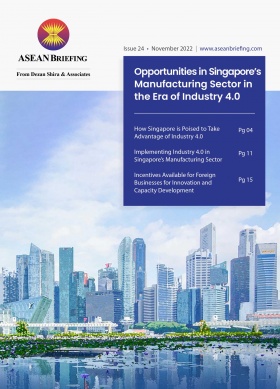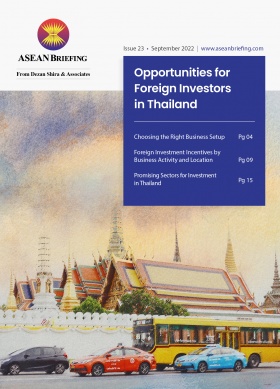Changes to Customs Procedure for the Import of Digital Products to Indonesia
Indonesia has made changes to the customs procedure for the import of digital products into the country. Digital goods that are transferred through electronic transactions should be declared to the customs authorities and duties must be paid no more than 30 days from the date of declaration.
Previous regulations did not provide a mechanism for the import of intangible goods such as software, showcasing the growth of Indonesia’s digital economy.
Indonesia has made changes to the customs procedure for the import of digital products. Minister of Finance Regulation 190/PMK.04/2022 (MOF 190/2022) stipulates that intangible goods such as software, operating systems, and digital tools are subject to import duty. The regulation has come into force since January 13, 2023.
MOF 190/2022 also describes the type of supporting customs documents required for the import of intangible goods in addition to the requirement for authorized importers to obtain a registration number.
The regulation aims to regulate the import of digital goods into Indonesia, particularly since the country’s digital economy experienced huge growth over the last few years. A report compiled by Bains & Company, Temasek, and Google, highlighted that Indonesia’s digital economy had a gross merchandise value (GMV) of US$77 billion in 2022, an increase from US$41 billion in 2019 and making it the largest in Southeast Asia. The digital economy is predicted to have a GMV of US$130 billion by 2025.The mechanism for the import of digital goods to Indonesia
MOF 190/2022 clarifies that the import of digital goods to Indonesia can be done through electronic transactions. Under the previous regulation, MOF 228/2015, there was no mechanism for declaring the import of intangible goods.
The importer is now only required to submit an online customs declaration form no later than 30 days after paying for the intangible goods. Further, the importer must pay the relevant import taxes and customs duties.
The customs declaration form should contain the following information:
- Data of the importer or the customs service management company;
- Description of the goods;
- Payment type;
- Consignor’s data;
- Type of currency used in the transaction;
- Invoice;
- Free on Board (FOB) data;
- CIF (cost, insurance, and freight) value;
- Country of origin; and
- Types of payable levies for the goods.
Business registration numbers for non-AEO importers
Non-AEO certified importers must now obtain a business registration number to import goods into Indonesia. They must also comply with the other criteria such as paying import duties and initially storing the goods in a temporary storage area.
AEO (Authorized Economic Operators) are importers or exporters recognized by the Directorate General of Customs and Excise as having the highest level of compliance to implement the laws and regulations set by the government in regard to imports and exports. AEO holders have several benefits such as having their taxes and duties deferred and reduced time for document reviews and physical inspections.
The transfer of imported goods that are subject to IP requirements
Imported goods that are subject to intellectual property requirements and whose transfer has been suspended by the Indonesian Commercial Court can be partially transferred from the temporary storage area. To undertake this transfer, the importer must submit an application to the Customs Office with the following information:
- Identity of the applicant;
- Description of the goods; and
- Number and date of suspension order from the Commercial Court.
How can businesses prepare?
Businesses can adapt to the new regulations on self-consumed imported goods in Indonesia by taking several steps:
Businesses should review their import processes to ensure that they comply with the new regulations. This may involve making changes to their import documentation, payment mechanisms, and inspection procedures. For instance, non-AEO-certified importers must obtain a business registration number before importing goods.
MOF 190/2022 does give rise to some practical issues that could impact importers. The regulation stays silent on the types of software that are subject to import duties and so the interpretation of software and other digital goods can be broad. For instance, customs officials could see digital goods in the form of software updates for machines and devices.
Further, if the software is downloaded by customers, then the customers are unlikely to be regarded as ‘importers’
About Us
ASEAN Briefing is produced by Dezan Shira & Associates. The firm assists foreign investors throughout Asia and maintains offices throughout ASEAN, including in Singapore, Hanoi, Ho Chi Minh City, and Da Nang in Vietnam, in addition to Jakarta, in Indonesia. We also have partner firms in Malaysia, the Philippines, and Thailand as well as our practices in China and India. Please contact us at asean@dezshira.com or visit our website at www.dezshira.com.








